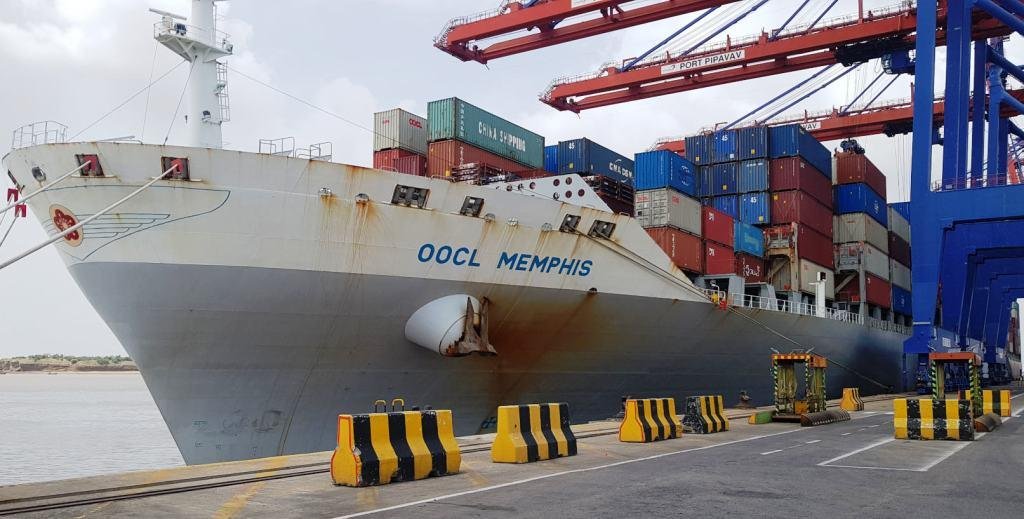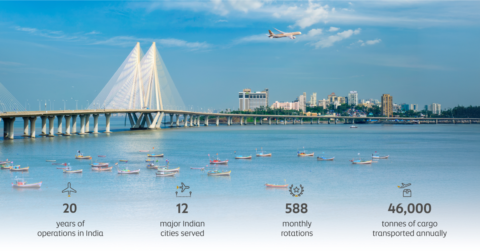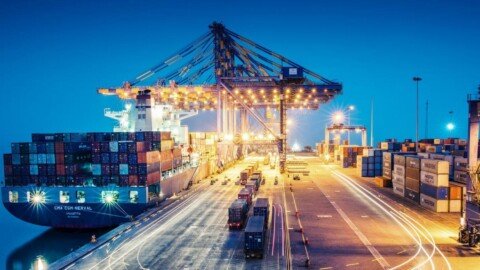Last week, APM Terminals Pipavav said it received the first call of CI1 (China-India Express) service operated by COSCO/OOCL.
The vessel MV OOCL MEMPHIS of COSCO shipping line with capacity of 8,888 TEUs reached Pipavav Port on June 25, 2021. The vessel arrived from Nhava Sheva, Mumbai and is set to sail to Port Klang of Malaysia.
“The new service is a testimony to our ocean and land infrastructure such as the terminals rail connectivity to Northern Markets and the imminent arrival of the Dedicated freight Corridor, and services that we offer to our customers,” APM Pipavav said in a statement.
“The service links Port Pipavav through port calls in Chinese ports of Shanghai, Ningbo, Shekou, Nansha as well as port of Singapore, Port Klang of Malaysia and Nhavasheva in Mumbai, India. The CI1 service provides an important connectivity to importers and exporters of Northwest India to the Far East,” the statement read.
The commodities carried were solar panels, PVC, resin, monofilament and machinery as imports, and cotton, soda ash and castor seeds as exports.
CI1 win is second such milestone for APM Terminals Pipavav after the port secured the PIC2 service to Jebel Ali in April.
When APM Terminals Pipavav announced in late April that it has secured the CI1 service, the company’s Managing Director, Jakob Friis Sorensen had been noted saying, “We are thrilled to be a part of connectivity to this key region that has a significant share in the world trade. After our new service to Jebel Ali early this month, we are now offering our infrastructural support to Far Eastern countries, thereby expanding our reach.”
“This service will establish a strong logistics chain for the EXIM cargo owners, thereby helping them expanding their presence in the far eastern countries. We are thankful to COSCO/OOCL for their trust in our service capabilities and infrastructure,” he added.
The new services are testimony to APM Pipavav’s infrastructure and services making it the preferred gateway to Indian Northwest.
Notably, APM Pipavav is also the first port in India to have started double stacked container trains operations with 180 TEUs capacity.







